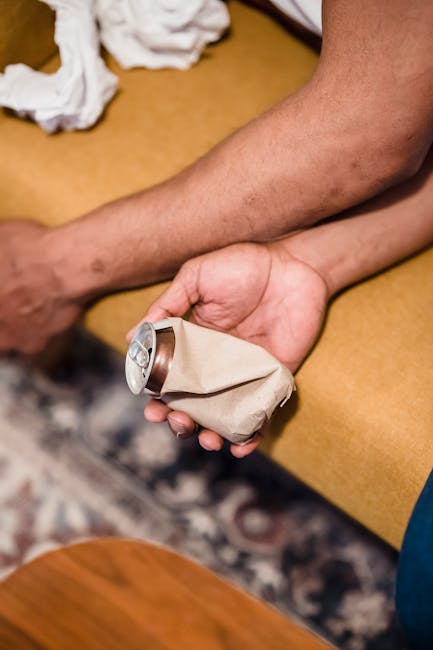Introduction: Exploring the Paleo Diet for Mental Wellbeing
Anxiety and depression are increasingly prevalent mental health challenges, impacting millions worldwide. While traditional treatments like therapy and medication are effective for many, some individuals seek alternative approaches to manage their symptoms. The Paleo diet, often touted for its physical health benefits, is gaining attention for its potential role in supporting mental wellbeing. This article explores the connection between the Paleo diet and mental health, examining the evidence and considerations for those considering this dietary approach.
Understanding the Paleo Diet and its Potential Benefits
What is the Paleo Diet?
The Paleo diet, also known as the caveman diet, is based on the presumed eating habits of early humans. It emphasizes whole, unprocessed foods that proponents believe our bodies are genetically adapted to consume. This typically includes:
- Lean meats
- Fish
- Fruits
- Vegetables
- Nuts and seeds
Foods that are generally avoided on the Paleo diet include:
- Grains (wheat, rice, corn, etc.)
- Legumes (beans, lentils, peanuts)
- Dairy products
- Processed foods
- Refined sugars
How Might the Paleo Diet Impact Anxiety and Depression?
Several potential mechanisms could explain how the Paleo diet might influence mental health:
- Reduced Inflammation: Processed foods, sugar, and unhealthy fats can contribute to chronic inflammation, which has been linked to anxiety and depression. The Paleo diet’s emphasis on anti-inflammatory foods may help reduce inflammation and improve mood.
- Improved Gut Health: The gut microbiome plays a crucial role in mental health through the gut-brain axis. The Paleo diet, rich in fiber from fruits and vegetables and devoid of processed foods, may promote a healthier gut microbiome.
- Stable Blood Sugar Levels: Refined carbohydrates and sugars can cause rapid spikes and crashes in blood sugar, leading to mood swings and irritability. The Paleo diet’s focus on protein, healthy fats, and complex carbohydrates can help stabilize blood sugar levels and promote a more even mood.
- Nutrient Density: The Paleo diet is rich in essential nutrients, including vitamins, minerals, and antioxidants, which are vital for optimal brain function and neurotransmitter production.
Evidence and Research on the Paleo Diet and Mental Health
Existing Studies and Research Findings
While direct research on the Paleo diet’s impact on anxiety and depression is limited, some studies suggest potential benefits. Research on similar dietary approaches, such as whole-foods diets and anti-inflammatory diets, has shown promise in reducing symptoms of depression and anxiety. More specifically:
- Studies have shown a correlation between high consumption of processed foods and increased risk of depression and anxiety.
- Research suggests that a diet rich in fruits, vegetables, and healthy fats can improve mood and cognitive function.
- Some individuals report anecdotal improvements in mood and energy levels after adopting a Paleo diet.
It’s important to note that more rigorous research, specifically focusing on the Paleo diet and mental health outcomes, is needed to draw definitive conclusions.
Important Considerations and Potential Drawbacks
Before adopting a Paleo diet for anxiety and depression, consider the following:
- Nutritional Adequacy: Ensure you are meeting all your nutritional needs, especially calcium and vitamin D, which are traditionally obtained from dairy. Consider supplementation if necessary.
- Sustainability: The Paleo diet can be restrictive and may be difficult to maintain long-term. Consider a modified approach that incorporates some non-Paleo foods if needed.
- Individual Variation: The Paleo diet may not be suitable for everyone. Consult with a healthcare professional or registered dietitian before making significant dietary changes, especially if you have underlying health conditions.
- Cost: Access to fresh, high-quality meats, fish, and produce can be expensive, making the Paleo diet less accessible for some individuals.
Implementing the Paleo Diet for Mental Wellness: Practical Tips
Getting Started with the Paleo Diet
- Start Gradually: Don’t try to overhaul your diet overnight. Begin by eliminating processed foods, sugary drinks, and refined carbohydrates.
- Focus on Whole Foods: Prioritize fresh fruits, vegetables, lean proteins, and healthy fats.
- Plan Your Meals: Meal planning can help you stay on track and avoid impulsive unhealthy choices.
- Read Food Labels: Pay attention to ingredient lists and avoid foods with added sugars, artificial sweeteners, and processed ingredients.
- Experiment and Adjust: Find what works best for you. The Paleo diet is not a one-size-fits-all approach.
Combining Paleo with Other Mental Health Strategies
The Paleo diet should not be considered a replacement for traditional mental health treatments. It’s best used as a complementary approach alongside therapy, medication, or other evidence-based strategies.
- Therapy: Cognitive Behavioral Therapy (CBT) and other forms of therapy can help address underlying thought patterns and behaviors that contribute to anxiety and depression.
- Medication: If prescribed by a doctor, medication can help manage symptoms of anxiety and depression.
- Lifestyle Changes: Regular exercise, adequate sleep, stress management techniques, and social support are all important for mental wellbeing.
Conclusion: The Paleo Diet as Part of a Holistic Approach to Mental Health
The Paleo diet may offer potential benefits for anxiety and depression by reducing inflammation, improving gut health, stabilizing blood sugar levels, and providing essential nutrients. However, more research is needed to fully understand its impact on mental health. If you are considering the Paleo diet for anxiety and depression, it’s essential to consult with a healthcare professional or registered dietitian to ensure it’s appropriate for you and to address any potential nutritional deficiencies. Remember that the Paleo diet is best used as part of a holistic approach that includes therapy, medication, and other lifestyle changes.
